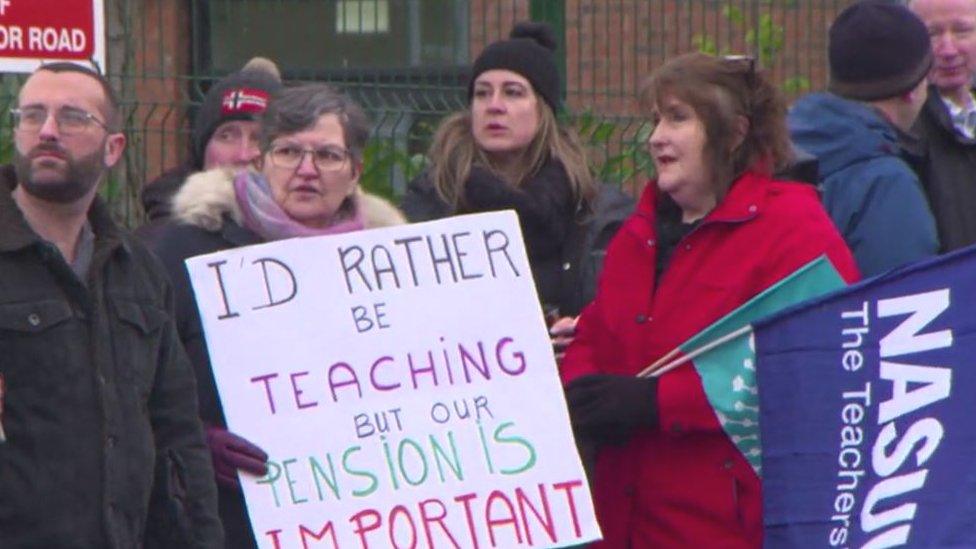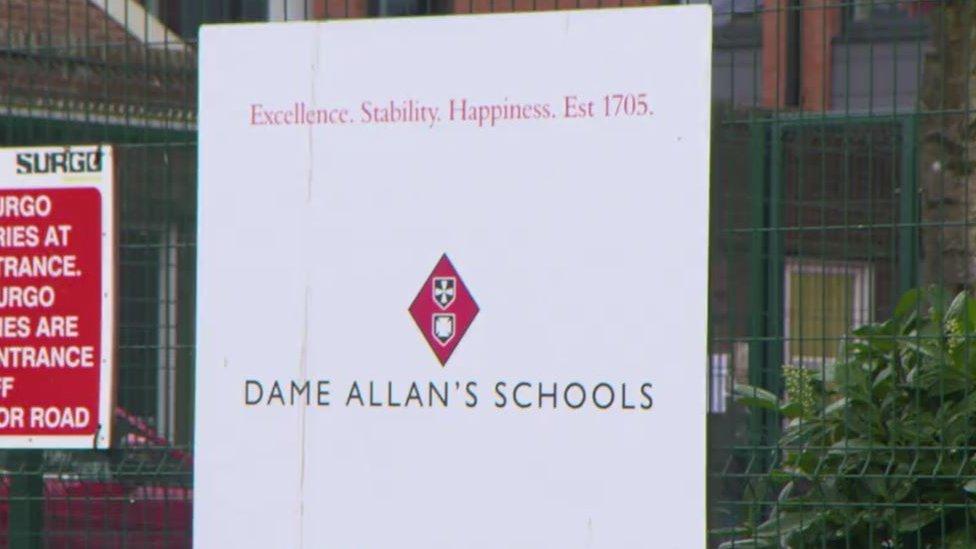Staff at Newcastle's Dame Allan's walk out for second time
- Published

About 100 staff at Dame Allan's in Newcastle joined the action in protest over changes in their pension benefits
Teachers at an independent school have walked out for a second time in a dispute over pensions.
About 100 staff at Dame Allan's in Newcastle joined the action in protest over changes in their pension benefits.
However, Teachers' Union (NASUWT) and the National Education Union (NEU) said a further strike on Wednesday had been halted for further negotiations.
Governors at the school said current pensions were "unaffordable amid pressures from inflation".
The private school, which was established in 1705, charges fees of up to £16,000 a year.

Teaching unions said staff "loved" working at the school but wanted good pensions
John Hall, spokesman for NASUWT, said the school had made an "improved offer" and it would be discussed to decide whether it was "good enough" for members.
"At least there is progress and we will start negotiations with the employer," Mr Hall added.
David Arthur, chair of governors, said the school was in a "difficult position amid rising pension contributions, years of high inflation and a challenging economic climate".
'Love working here'
He added that "careful consideration" had been given to staff concerns and an amended proposal had been offered to give staff a "degree of reassurance".
The action has affected both the junior and senior schools. Further strike days were proposed for 16-18 April.
The unions said the action had been called because the school was seeking to change its pension provider and reduce its employer contributions.
Beth Farhat, regional secretary for the NEU said: "Lots of teachers are handing in their resignations, lots are looking for other jobs because of this, but ultimately they love working here.
"The love the children, they want to stay here and they want a good pension scheme."

The school, which was established in 1705, charges fees of up to £16,000 a year

Follow BBC Newcastle on Facebook, external, X (formerly Twitter), , externaland Instagram, external. Send your story ideas to northeastandcumbria@bbc.co.uk, external.
Related topics
- Published15 March 2024